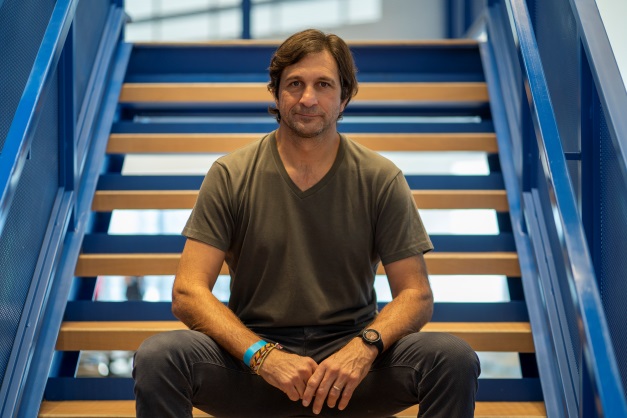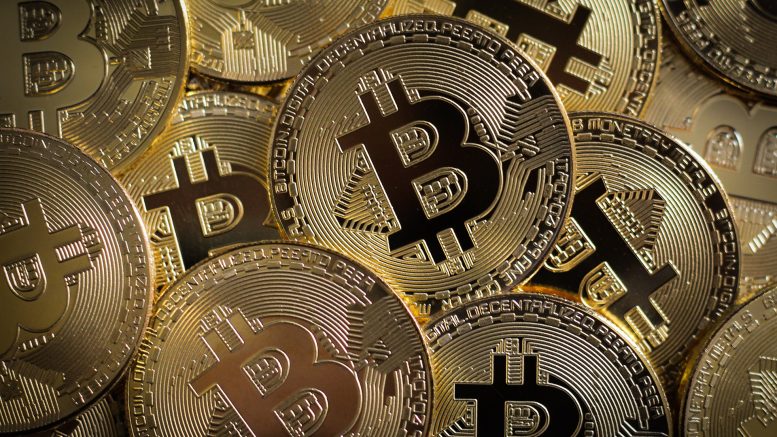“We know that, for farmers, their grain production is their currency. We materialized this on a credit card so that farmers can make daily payments…”
Eduardo Novillo Astrada has a degree in business administration from Pontificia Universidad Católica Argentina and is an entrepreneur with participation in sports, technology, e-sports, real estate, agribusiness and pets.
Astrada is CEO and co-founder of Agrotoken, an Argentine company that aims to digitize agribusiness through “tokenization” and that has already closed partnerships with Visa and Santander.

Eduardo Astrada, CEO at Agrotoken
AgriBrasilis – What are “tokenized” assets? Why use this tool?
Eduardo Astrada – Tokenized assets are cryptographic representations of real assets, which preserve their values and guarantee the exchange rates. In our case, 1 Token (soybean, corn, wheat) represents 1 tonne of grain delivered (soybean, corn, wheat).
Tokenized grains allow farmers the flexibility to pay cash whenever they want at the more than 200 stores that accept the tokens as a form of payment. It allows farmers to apply for loans using tokens as collateral to not lose the value of their production, or use their tokens through a pre-financed VISA credit card. This allows them to pay directly with their production in more than 80 million stores worldwide.
AgriBrasilis – What can farmers do with a “tokenized” grain payment card?
Eduardo Astrada – We know that, for farmers, their grain production is their currency. We materialize this on a credit card so that farmers can make daily payments, such as paying for fuel, vehicle maintenance, paying for accommodation, purchases of agricultural inputs or whatever else they need. As we always say, farmers can buy anything from a tractor to a coffee.
AgriBrasilis – What guarantees these operations and how does the ballast process for this currency work?
Eduardo Astrada – Agrotoken is a multichain platform. All our operations (tokenizations and transactions) are carried out on the blockchain, on three different networks: Algorand, Ethereum and Polygon, ensuring the traceability, transparency and efficiency of our processes.
For each token issued, there is what is called a grain reserve voucher, which consists of a proof of the existence of the grain (deposit certificate or equivalent validated by Oracle Collector/exporter) and also a proof of its liquidity (purchase agreement/ grain sale), which guarantees the flow of resources when the token is used.
AgriBrasilis – Are there regulations for this type of operation in Argentina? What about in the case of Brazil?
Eduardo Astrada – There are still no specific regulations in any of the countries mentioned. In general terms, everything that has to do with digital assets is under constant analysis and evolution by the different supervisory authorities.
For our part, we work collaboratively to achieve a better understanding of the ecosystem and favor all agribusiness actors, both in the public and private spheres.
AgriBrasilis – What does the association between AgroToken and Visa consist of? Are the other partnerships being developed?
Eduardo Astrada – It is a strategic association that began with the development of the Visa-Agrotoken credit card and will continue with features that facilitate decision-making and the daily processes of the farmers.
We are always looking for new partnerships. We continue to add strategic alliances in the financial sector and recently started a joint development with the Ripio team. We want our tokens to be accessible to everyone.
AgriBrasilis – AgroToken is starting operations in Brazil. What are the company’s plans and in what other markets does it intend to operate in the coming years?
Eduardo Astrada – Brazil is an incredible challenge. It is a very different market from Argentina, that requires a customized solution, and where our current platform serves as the basis for starting this adaptation. We aim to start operations during the last quarter of this year so that we can continue with our expansion plan in 2023.
In addition to Brazil, we intend to operate in the United States, Uruguay and Paraguay in the next six months.
AgriBrasilis – What is the future of the “tokenization” of financial assets?
Eduardo Astrada – For us, the future of tokenization is to make the value of natural resources accessible to all and contribute to the development of a fairer and more equitable economic system. AgroToken wants to create the most trusted tokens in the world.

